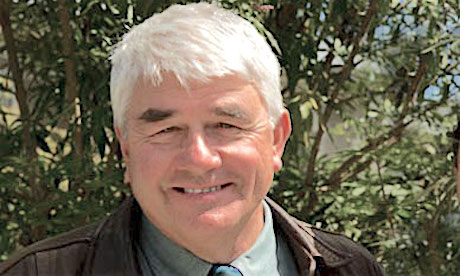Rob McGowan, a former Catholic priest, has spent 20 years in teaching, researching and assisting Māori engage in traditional uses of native plants.
McGowan is one of the foremost authorities on rongoā Māori (traditional Māori medicine) and is well respected nationally for his work with and for the restoration of rongoā Māori practice in New Zealand.
Last week he and Donna Kerridge presented workshops on Māori Medicine at White’s Bay as part of Marlborough’s NELMAC Garden Festival.
McGowan currently works for the Department of Conservation (DOC) and is the Amo Aratu for Nga Whenua Rahui (NWR), a contestable Ministerial fund established in 1991 to provide funding for the protection of indigenous ecosystems on Māori land.
He has been involved for more than 20 years in teaching, researching and assisting Māori re-engage in traditional uses of NZ native plants, particularly for medicine (rongoā Māori).
He is author of “Rongoā Māori – a practical guide to traditional Māori Medicine” (2009).
As the current Chair of the Kaimai-Mamaku Catchments Forum he is involved in ensuring the Tauranga Harbour and Waihou catchments are sustainably managed.
He has also provided input into aspects of intellectual property issues relating to the Waitangi Tribunal’s Wai 262 report and served as a rongoā Māori advisor to numerous Government committees, Māori tribal authorities and for a number of rongoā Māori related research and education initiatives.
In his current work he is part of DOC’s project to build a bridge between Western Science and Matauranga Māori (traditional Māori knowledge) in conservation management.
McGowan is one of the founders of Tane’s Tree Trust a non-profit charitable trust that was established more than 10 years ago to encourage New Zealand landowners to successfully plant and sustainably manage indigenous trees for multiple uses.
In at interview on stuff.co.nz McGowan said conditions such as allergies, diabetes, and deep tissue damage as well as menstrual problems were some of the reasons why people went to a rongoa practitioner.
“Sometimes Māori medicine can help. Sometimes all you can do is support them, and encourage them to see a doctor.”
Injured sports players often found rongoā practitioners could help them a lot, McGowan said.
He would like more people to think of Māori medicine as “something that’s better used at the beginning”, a way of staying healthy rather than a way of healing illness.
McGowan said rongoā Māori also celebrated the connection the person had to the natural world.
“One of the things that is really important to Māori is that they see themselves as being part of the family of the bush, descended from Tane Mahuta [god of the forests],” he said.
He also saw the function of Māori medicine as healing the person spiritually, not just physically.
“Health isn’t just about the chemistry in your body. Sometimes you can’t heal sickness unless you find the reason you’re wrecking your health.”
“Māori medicine is like any good healthcare practice: you come for the whole person, not just the symptoms.”
He practiced but did not operate from a clinic, as his work took him away too often.
People had called him a “witch doctor” before, but he said this was because there was a misunderstanding about Māori medicine.
While the Department of Conservation recognised the role of Māori medicine, McGowan thought herbal medicine was treated with caution in New Zealand.
He said there was not a good understanding of rongoa Māori because practitioners tended to be “very shy people”.
Source
Additional readingNews category: New Zealand.




